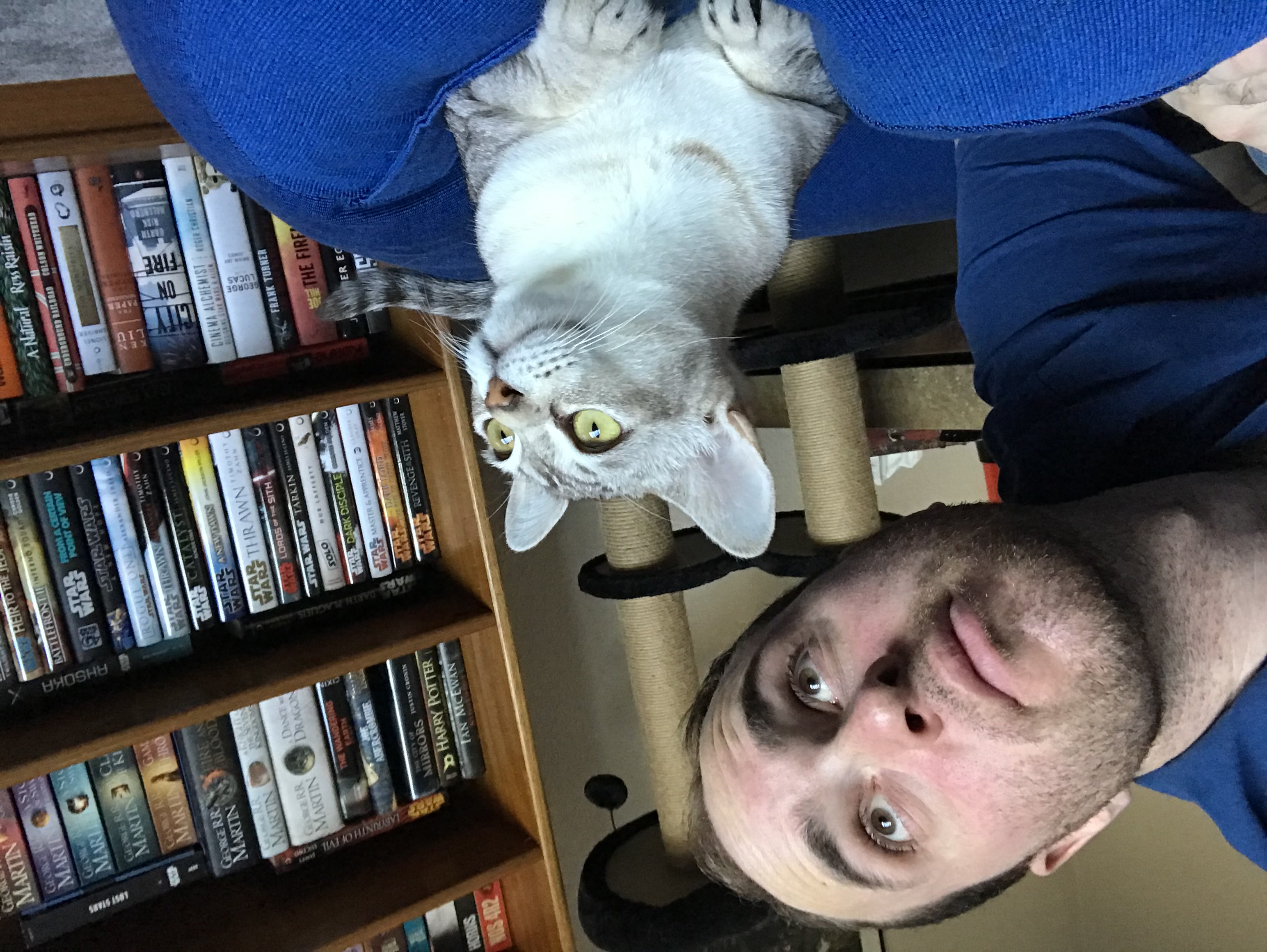Why does my cat bring me toys and other ‘gifts’? 3 vet-verified reasons
Our vet answers, ‘Why does my cat bring me toys?’
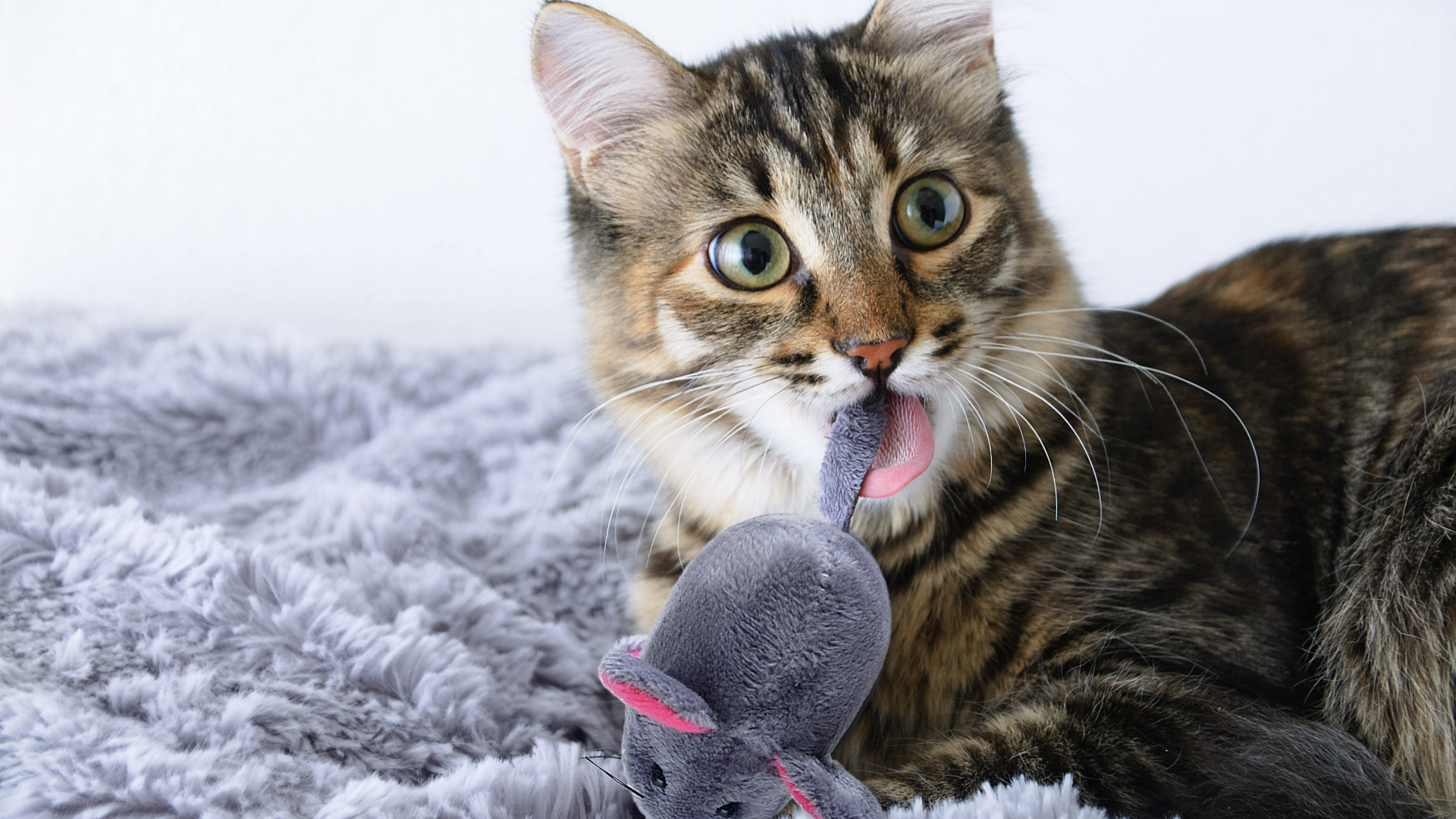
If you’re a pet parent, you’ve probably wondered, “Why does my cat bring me toys and other gifts?” at least once. Whether it’s their favorite plushie or a dead animal from the garden, some of these presents aren’t always so welcome – even if your feline friend means well!
So, what’s the reason behind this behavior? Well, if they’re bringing you one of their favorite cat toys, it might indicate that they want to play – especially if they enjoy a game of fetch. However, there could be other factors at hand, like wanting to show off their prize or as a sign of love and trust.
Below, Dr Rebecca MacMillan explains all the reasons your cat brings you toys and gifts, plus how to stop them from bringing you dead animals. She’s a vet with more than a decade and a half of experience working with cats and has all the answers you’re looking for.
Why does my cat bring me toys and other gifts?
1. They want to play
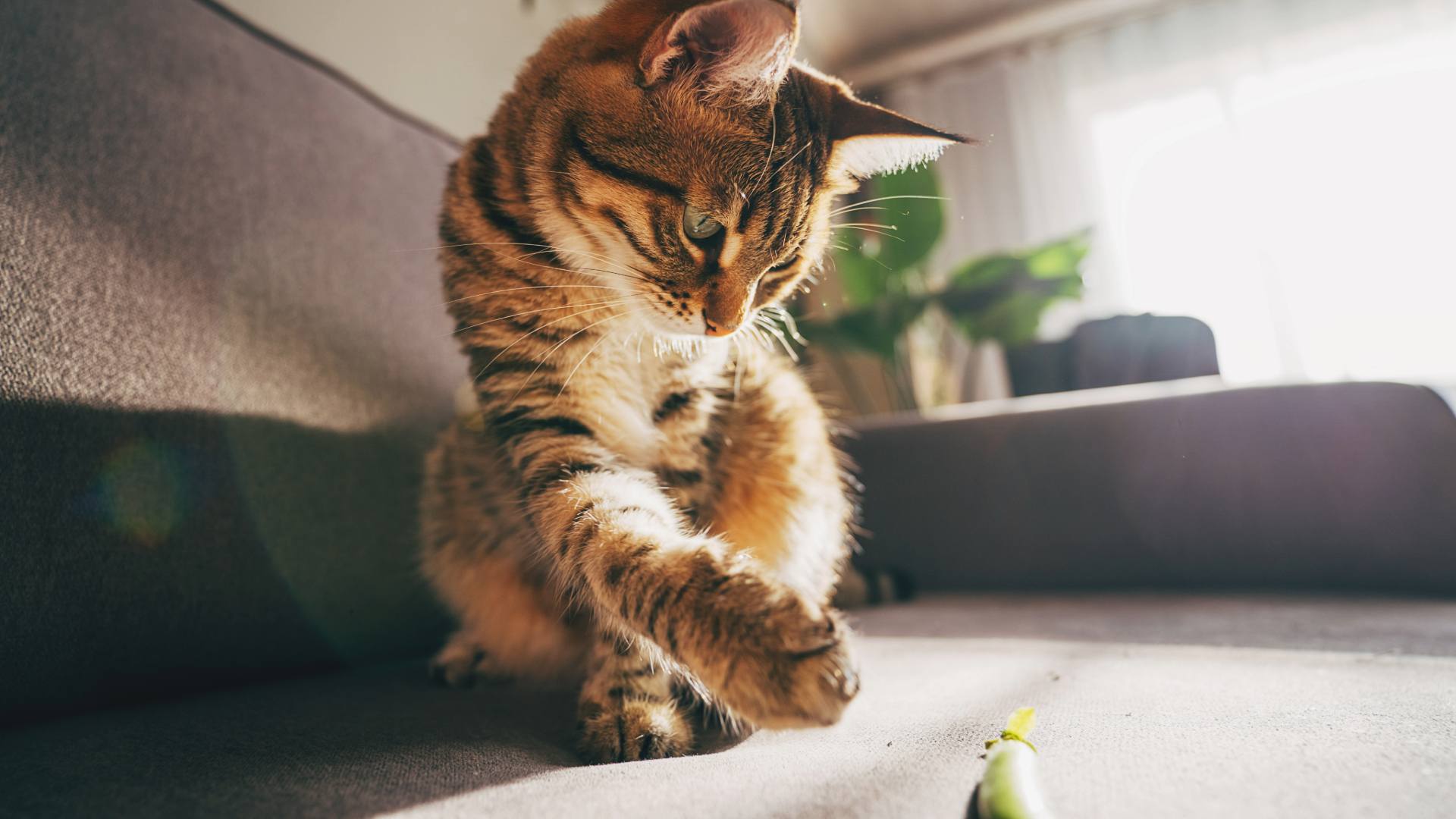
It’s the simplest explanation here, but if you’ve been away from the house for most of the day then your cat will likely be starved of attention, and want an immediate top-up. This is usually the case if they’ve bought you a stuffed toy – or even another object that could be used as a toy – and dropped it at your feet.
If you find your kitty is particularly demanding around this, engaging them in 10-15 minutes of cat play is likely to make a huge difference to their behavior. But don't worry if you don't have time to meet their need in that moment because the best automated cat toys can help keep them occupied until you're free to play.
Dr. MacMillan says: "Many cats will bring their owners a toy for one simple reason, they want to play! By bringing you a toy they are indicating that they want to engage with you. Once they know that bringing you a toy gets a positive response they will keep doing it. Each time you respond and start a game this reinforces the behavior.
"If your cat is under stimulated then they may be looking for attention. One way of doing that is by bringing you a toy. If you are finding this a real issue, then look at ways you can improve their environment to keep them busy. You could also try a few interactive cat toys to keep them happy while you’re busy."
Get the best advice, tips and top tech for your beloved Pets
2. They see the toy as a trophy

Cats will instinctively hunt, stalk, and catch their prey, because those are the instincts that are embedded into their DNA.
This is why outdoor cats have been known to bring in the grisly relics of their ‘hunt’ – they see what they have caught as a trophy, and are presenting it to you as such, either as a reward for you, or as their means of contribution to the household! In the absence of live prey, indoor cats will use cat toys as a substitute, hence why they are bringing them to you.
In the absence of toys, they may even bring you items of clothing or other objects, possibly as a way of teaching you how to hunt. It may be that you find this behavior endearing and don’t want to discourage it, but if you do, we recommend checking out some of our buying guides to provide them with some alternative means of amusement!
Dr. MacMillan says: "Some cats will present you with a toy because they are showing off as if they were presenting you with a hunting trophy. It’s a way of saying ‘Look what I’ve caught!’. If you react with smiles, praise, and a fuss, this will reinforce the behavior.
"Once they know that boasting gets them a positive reaction they will continue to do it, which is kind of cute actually. It shows they take pride in their abilities and want to share that with you.
"Hunting and bringing prey home is a natural instinct for many cats. In this instance, the prey is a toy, and you are their family. For some cats, their maternal instinct takes over. Not only do they want to provide you with their kill, but they might try to teach you to hunt too!"
3. As a sign of love or trust
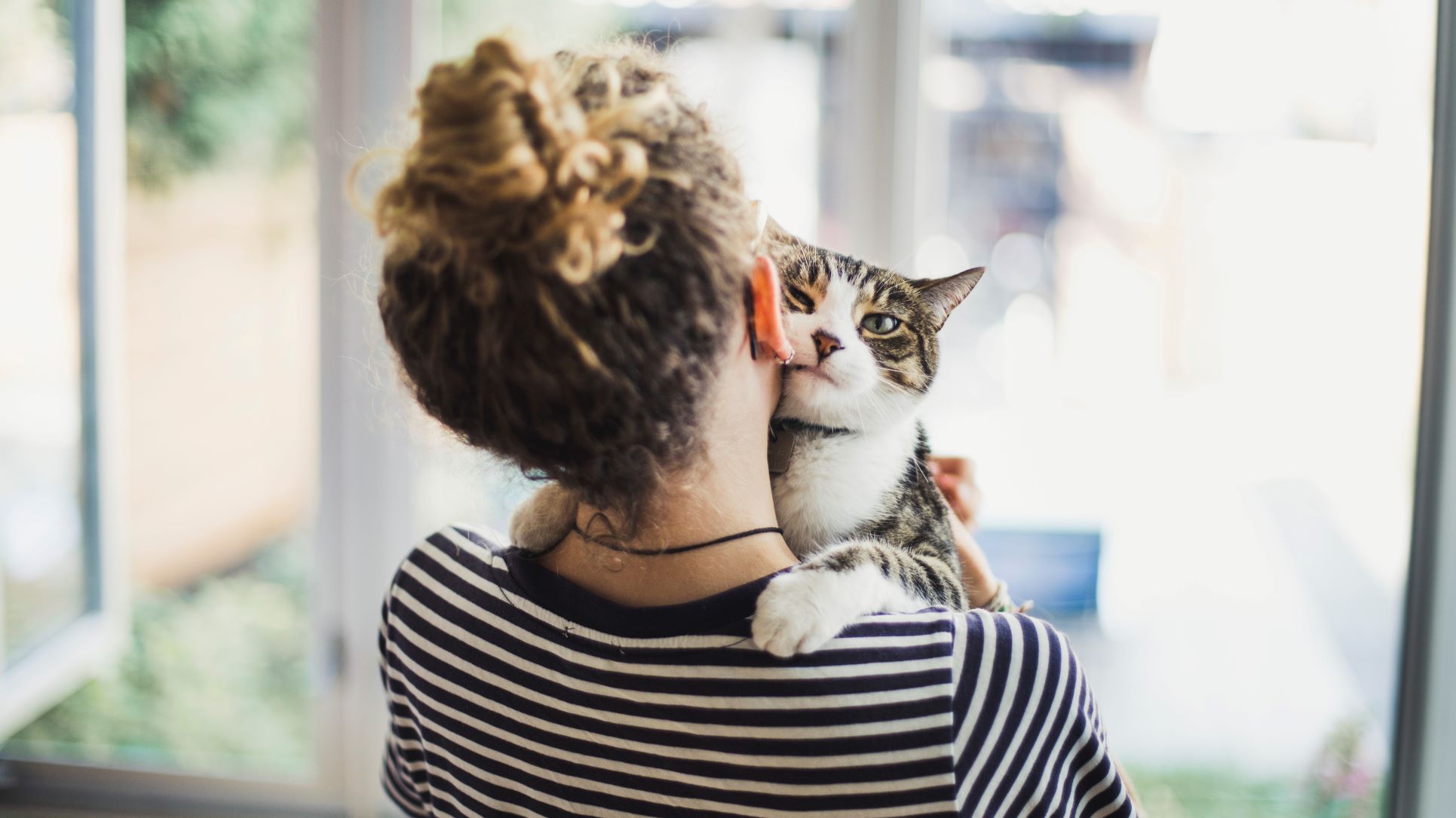
If your cat purrs or bumps their head against you before or after dropping the toy off near you, then it’s probably safe to say that they’re doing this as a sign of affection.
As previously mentioned, cats are very territorial, and the fact that they are willing to share their hunting spoils with you is very much intended as a compliment, showing their trust and respect for you.
If you pet them afterwards, it will show them that you reciprocate and appreciate their actions. Similarly, it may even be the case that they trust you enough to look after it, so are leaving it with you for safekeeping.
Some even theorize that cats see humans as poor hunters, unable to care for themselves, and are bringing you this gift as a way to look after you. Either way, if they are bringing things to you, then it’s almost certainly a positive sign for your relationship.
Dr. MacMillan says: "A cat that brings you a toy is showing clear signs of affection. This is one of the subtle ways that our pets tell us they love us.
"Cats may favor one owner in the house, or they may engage with everyone, it depends on their personality. But either way you should feel pleased when your cat brings you a toy, it shows that they trust you."
4. To get you to fix it
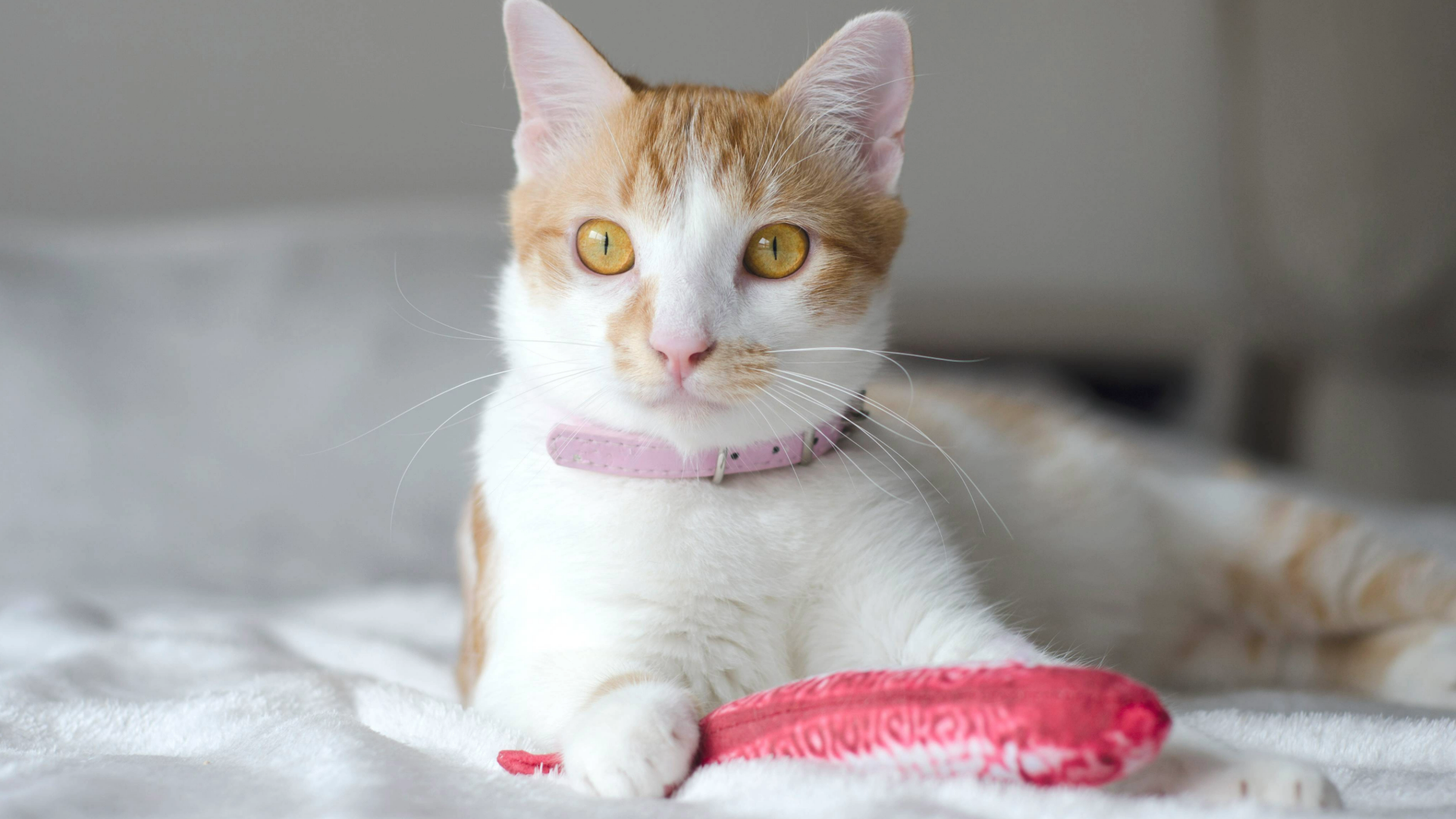
If your cat has a favorite toy that's looking a little worse for wear and they're regularly bringing it to you, it's likely that they're trying to point out that their much-loved stuffed mouse is in need of a little TLC.
This is particularly likely if they have a catnip-filled toy that they can't get enough of that's running low on the good stuff. Make sure you repair any damaged toys or replace when they're past the point of fixing, and keep catnip toys well filled up so that they don't lose any of their enticing aroma.
Dr. MacMillan says: "A bonded cat will look to you to solve problems. If their toy is broken or they can’t figure out how to work it, then they might bring it to you for help.
"If a well-used toy smells different or has some loose threads, then they might be feeling a bit confused. Some cats also like you to show them how to play with a new toy, so reward them with a game."
What should I do if my cat brings me dead animals or other inappropriate gifts?
Whether it's a piece of clothing they've stolen off the neighbors washing line or a dead mouse that shows off their hunting prowess, there are some gifts from your cat that you might not be quite so overjoyed to receive.
It's important to remember that your cat is simply being a cat and exercising their natural hunting instincts, so it's important not to scold your feline friend for engaging in normal cat behaviors.
Instead, consider restricting your cat's access to the great outdoors if they're repeat offenders when it comes to bringing in dead wildlife. If you'd rather not do that, try fitting their collar with a bell which will alert birds, mice, and other animals to their presence.
Be sure to play with your cat on a daily basis as this will help prevent boredom and may decrease their desire to go outside and hunt, and feed them the best cat food in wet or dry form to provide them with nutrition they need to stay happy and healthy.
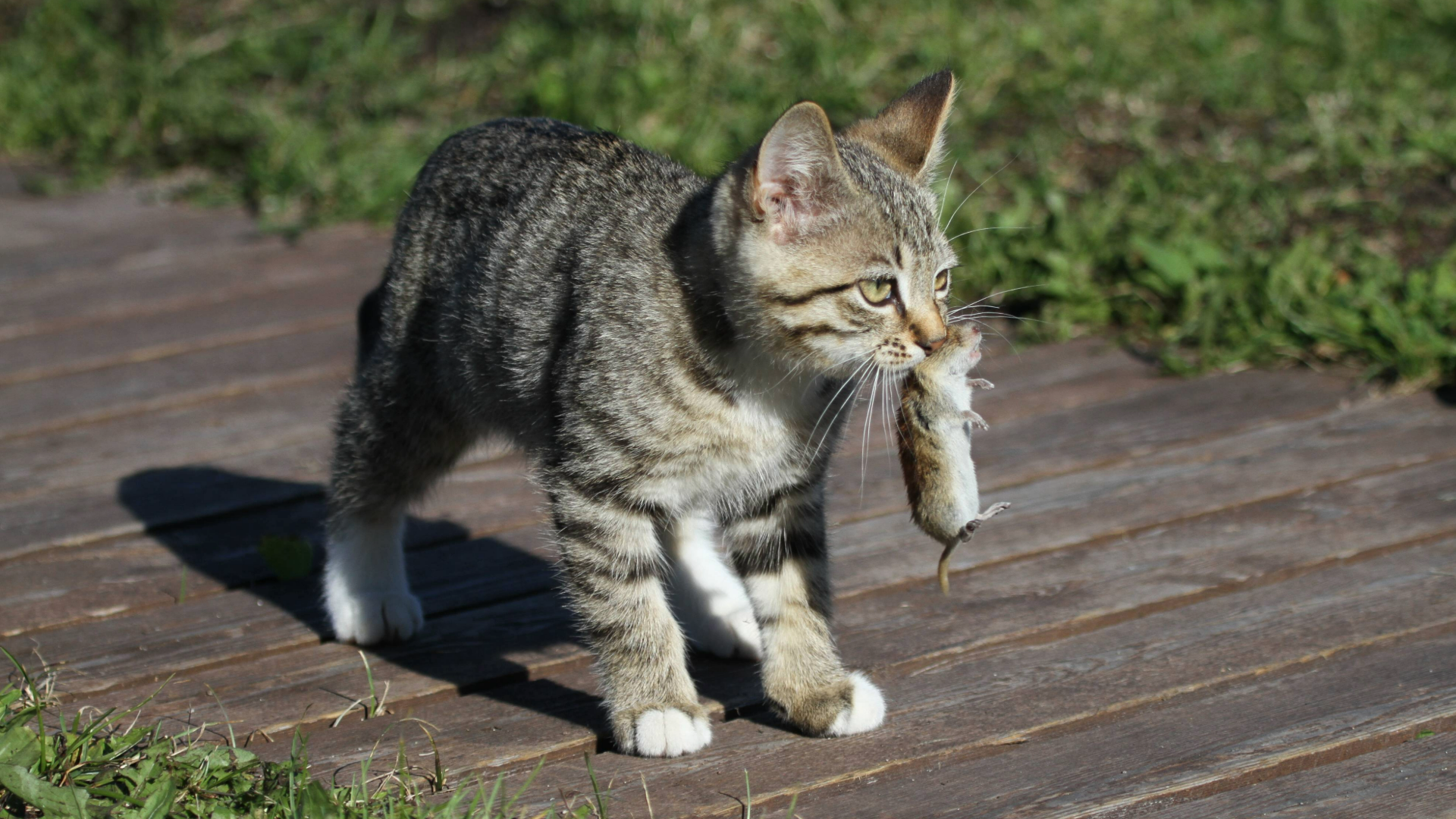
We asked Dr. MacMillan for her top tips:
1. Stay calm
"If your cat brings you a dead animal, it’s important to stay calm. If you react, whether that’s positively or negatively, your cat will be receiving attention for their behavior. Some cats see any attention as a good thing, especially if they are bored! This could accidentally reinforce it and encourage them to repeat it again in the future."
2. Increase play time
"Start by increasing the amount of play time at home, scheduling in regular and predictable sessions. Provide a variety of toys on a rotation system to keep their interest. You can use catnip occasionally to make things extra exciting! Puzzle feeders and battery powered toys might also help to keep them busy when you are out."
3. Neuter your cat
"Neutering your pet can reduce their tendencies to roam which might in turn reduce their desire to hunt. This is also a responsible thing to do as it will stop unwanted pregnancies and reduce inter-cat fighting."
4. Use a collar with a bell
"When I speak to owners in consultations, they have variable success with putting a collar and bell on their cat [like this one on Amazon]. Cat collars must have a safety release clip in case the cat gets caught on a branch or similar while out exploring.
"The idea is that the bird or rodent hears the bell tinkling and runs off before your cat can catch them. However, this isn’t fail safe and many owners get frustrated when their cat loses yet another collar! It might be worth a try though."
5. Make changes in your garden
"Try making a few wildlife friendly changes in your garden, like putting bird feeding stations well out of reach of your cat and any nearby walls or fences. You should also provide birds with enough shrubs and trees to hide in."
She adds: "Unfortunately, hunting is natural cat behavior, and the urge is stronger in some cats than others. But to discourage your cat from bringing home more kills, there are a few things you can try."
Rest assured that your kitty frequently bringing you toys and other gifts is nothing to worry about - if anything, it's a positive thing. Your feline friend is simply choosing to include you in behaviors that would come naturally to them in the wild and that they'd indulge in with other members of their clowder, a huge honor indeed!
A vet answers whether you should intervene if your cat catches a mouse in this feature. Or, learn why cats play at night and why cats sit on their toys

Rebecca is a veterinary surgeon who graduated in 2009 from the Royal Veterinary College in London. She has a wealth of experience in first opinion small animal practice, having done a mixture of day-to-day routine work, on-call emergency duties and managerial roles over the years. Rebecca enjoys medicine in particular and she is proud to have recently achieved a BSAVA postgraduate certificate in small animal medicine (with commendation).
Edited by Georgia Guerin.
This page was last updated in April 2025 by Megan Milstead.
Steve writes and proofreads buying guides, news stories and advice for Pets Radar, drawing on his lifelong experience as a pet owner. Currently sharing his house with two cats and a dog, he draws on the many highs and occasional lows of pet ownership he has borne witness to in his writing. He has worked in publishing for 15 years as an editor, sub editor and writer on a range of titles, such as SciFiNow, How It Works, All About History, Real Crime and Horrorville. You can follow him on Twitter @stevewright22
- Dr. Rebecca MacMillanVet
- Megan MilsteadStaff Writer
